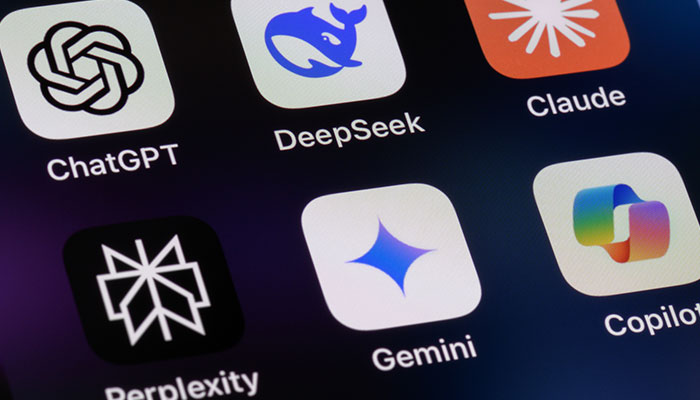From choosing subjects to career guidance and predicting job market trends, artificial intelligence (AI) now shapes how students learn, study and plan their futures.

While AI is already making our lives more productive at work and more enjoyable at home, there are fears it will cause mass job losses - particularly in a variety of careers many students may wish to pursue.
Macquarie Business School Associate Professor Mauricio Marrone says students need to understand AI as it will affect their educational journey and career preparations.
“Fear of AI is unproductive, but informed awareness is important,” he says. “While some students may express concerns about their future employment prospects due to AI, others recognize its benefits and potential to propel them in their careers.”
In Navigating Career Stages in the Age of Artificial Intelligence, Marrone and colleagues including Macquarie Business School Associate Professor Sarah Bankins highlight the role of AI in guiding career decisions through the technology’s predictive capabilities, altering the skills demanded of workers as well as fuelling the apprehensions of workers about their future.
“Students with realistic expectations and practical knowledge about AI tend to navigate these changes better,” Marrone says.
And the good news, Marrone says, is AI is not difficult to understand or use, as modern AI tools are increasingly user-friendly with easy-to-use interfaces.
“The challenge lies in understanding AI's capabilities, limitations and implications,” he says.
Thinking for you
Unlike previous technological revolutions that primarily transformed physical tasks, AI has the ability to perform cognitive tasks that traditionally require human thinking.
These attributes create both challenges and opportunities across all disciplines and career stages, Marrone says.
“AI's capability to learn from data, adapt to new information and make autonomous decisions represents a fundamental shift in how technology integrates with human work and decision-making processes.”
Marrone uses AI to enhance his work and provide better support to students and colleagues: “For example, I use it to create visualisations to communicate complex information.”
In his personal life, Marrone uses AI to summarise long podcasts to enable him to quickly come to grips with news and current affairs and as a replacement for internet searches.
“Additionally, AI helps me discover and suggest recipes based on ingredients I have available, plan travel itineraries and recommend things I may have overlooked,” he says.
Marrone says the technology will transform students’ university education by allowing for personalised learning experiences tailored to their previous knowledge, strengths and weaknesses.
- 'Slopaganda': Is generative AI better at producing persuasive disinformation than humans?
- Please explain: Why do archaeologists keep digging?
AI will make studying more manageable, productive and rewarding by providing students with better learning tools and support, Marrone says.
“It will enhance assignment feedback, improve accessibility by producing different media formats and enable students to focus on higher-order thinking and creative problem-solving rather than routine tasks.”
AI already plays a crucial role in the world of work by matching graduate skills and job requirements, providing personalised career guidance and analysing employment trends to identify emerging opportunities.
“Universities are slowly beginning to use AI to support students in these areas,” Marrone says. “After university, AI will continue impacting various aspects of students' lives, including career development and job search.”
How to develop AI skills
Students do not need an IT degree to effectively use and understand AI.

AI imitating life: Associate Professor Mauricio Marrone generated an image of himself using Chat GPT.
To become AI literate, Marrone says students and parents need technical understanding (how AI works, its capabilities and limitations), practical skills (the ability to use AI tools) and ethical awareness (an understanding of the societal implications and ethical considerations of AI).
“Students and parents should seek out AI tools such a ChatGPT (Open AI), Gemini (Google) and Copilot (Microsoft) for text generation. Try Midjourney, DALL-E (Open AI) and Stable Diffusion for image creation.”
“Understand them by experimenting with different prompts, reading platform documentation and completely introductory tutorials available on these platforms.
“AI literacy should be viewed as a complementary skill that enhances one's primary discipline, rather than replacing it.
“Students in history, economics, and other disciplines should develop AI literacy skills that are relevant to their fields. AI literacy is becoming fundamental, regardless of one's specialisation, much like digital literacy.”
Getting started with AI
Free online courses
Elements of AI - Offers two excellent courses: "Introduction to AI" and "Building AI"
AI For Everyone on Coursera - A popular non-technical course explaining AI concepts
Platforms to explore
For text generation and assistance:
◦ ChatGPT (OpenAI) - Try asking it to explain complex topics, help with writing or create learning plans
◦ Gemini (Google) - Experiment with multimodal capabilities (text, images, code)
◦ Copilot (Microsoft) - Useful for productivity tasks and Microsoft application integration
For image creation:
◦ DALL-E (OpenAI) - Create images from text descriptions
◦ Midjourney - Generate artistic interpretations from prompts
◦ Stable Diffusion - Open-source option for image generation
Tasks to try
1. Ask AI to explain concepts in your field of study
2. Try using AI to create study materials or summarise articles
3. Experiment with image generation by describing scenes from literature or history
4. Compare responses across different AI platforms to understand their strengths and limitations
Mauricio Marrone is an Associate Professor in the Department of Actuarial Studies and Business Analytics at Macquarie Business School.



